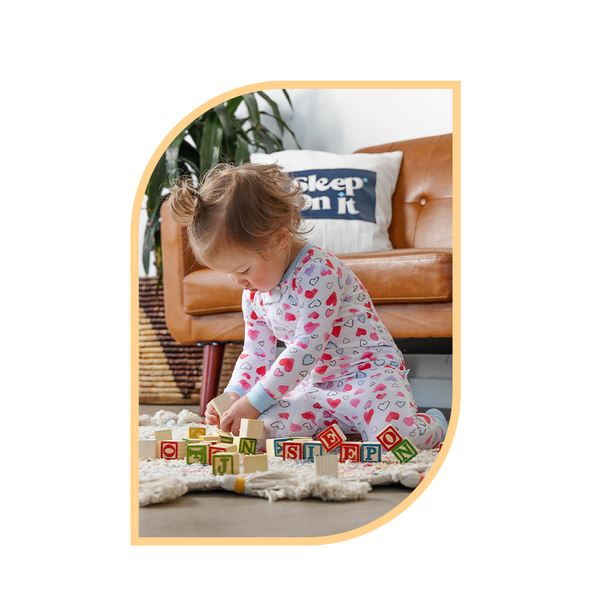Let’s begin with a question.
Did you know that play time, specifically independent play, has numerous benefits?
The confines of playtime for children are not just limited to them tiring themselves out by expending their energy. It’s far more than that, dear parents.
Independent play has the unique ability to greatly aid our children’s physical, social, cognitive, and emotional development journeys.
What is Independent Play?
The concept of independent play can seem wild to a lot of parents. However, in reality, it’s the common misconception of the notion that causes us parents to feel unsettled when we hear the term.
When we hear the term, ‘independent play’, we often jump to the conclusion that our children will be left to their own devices unsupervised. And we’d be half right. They are left to their own devices to interact with the objects in front of them and gain a deeper understanding of the world around them. However, they’re not unsupervised. We’re right there with them. We just don’t interfere.
Why Should Parents Encourage Independent Play?
Other than indulging in some guilt-free adult time, independent play has numerous benefits that aid our children’s cognitive developmental. Yes, you read that correctly. Playtime, specifically independent play isn’tjust about fun and games. It’s about allowing our children to indulge in the world around them to further skills, extremely necessary skills, that are required in the world. Let’s dig a little deeper:
Stimulates Imagination and Creativity
When adults engage and participate in children’s playtime, the level of imagination is restricted as we often take the lead and children follow. However, if we leave our children to just do their own thing, we see their creativity blossom as they are challenged to generate their own ideas.
Furthermore, by learning to be creative at such a young age, it fosters innovative thinking, as children develop the habit of thinking outside the box. Therefore, while ensuring a safe environment for our children is crucial during play time, it’s also equally important to ensure our children partake in independent play to develop their creative thinking skills.
Social Independence
While this may seem paradoxical, independent play actually encourages children to interact with others, developing their social skills to be more independent. As they’re used to their parents or caretakers not being actively involved during their free, playtime, they’ve developed the confidence and self-reliance to navigate social interactions.
Develops Problem-Solving Skills
A skill that is extremely important to continuously develop at any age in life, independent play nurtures our children’s ability to solve problems. They are forced to tap into their creative thinking and develop scenarios where they can imagine the problem at hand being solved.
Furthermore, by dealing with these scenarios head-on, they can develop their critical thinking and decision-making skills. By assessing the information in front of them to make informed decisions and reason logically, they can arrive at a suitable solution.
All three of these skills are crucial for personal and professional growth in the future, therefore encouraging our children to partake in activities that foster the development of these skills is vital.
Promotes Self-Confidence
When children play independently, their self-reliance and validation bloom. By tackling challenges, they face, they develop a sense of control and mastery over the situation, it allows them to rely on their intuition making them feel empowered to take charge of the challenge.
Furthermore, children also discover hidden talents and interests when during independent play. These moments of self-initiated exploration empower children to embrace their unique abilities and build the self-assurance needed to face challenges in various aspects of their lives. This type of freedom is fundamental to creating a strong foundation for self-confidence, as they are encouraged to approach life based on their own capabilities.











